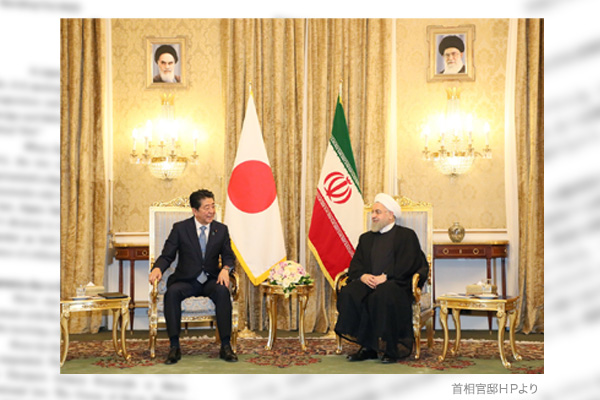Who attacked two oil tankers including a Japanese ship near the Strait of Hormuz? The United States has held Iran responsible, while Iran has denied its involvement. The attacks came during Japanese Prime Minister Shinzo Abe’s Iran visit and might have been conducted by some force attempting to disrupt Japan’s relationship with Iran. However, Abe’s visit to Iran was a key step towards preventing an accidental war between the U.S. and Iran and easing their tensions. Any armed organization or third country that attempts to raise tensions between the U.S. and Iran or welcome their military collision should not be allowed to benefit from the incident.
Abe diplomacy attempting to ease tensions
Some critics in Japan have branded Abe’s mediation diplomacy as failing or inviting the tanker attacks. It goes without saying that Japan has only a limited room to mediate between the two military powers as it lacks military clout. Any Japanese leader cannot be expected to make a breakthrough only by implementing a single visit to Iran. An important fact is that Iran has not rejected Prime Minister Abe’s shuttle diplomacy. He apparently gave priority to easing tensions and avoiding armed conflict through establishing negotiation channels between Washington and Tehran that have no bilateral hotline.
And then it is important to prevent oil supply from being disrupted by growing tensions in the Middle East. Japan would be hardest hit by a Hormuz Strait blockade accompanying a Persian Gulf conflict. As much as 80% of Japan’s oil imports as well as 20% of its natural gas imports pass through the strait. Japan has grown more dependent on Middle Eastern oil as its dependence on fossil fuels has increased in the absence of smooth progress in the restart of nuclear power plants following the 2011 Great East Japan Earthquake.
Furthermore, Japan’s behind-the-scene objective of its Middle East diplomacy is to prevent the United States from moving military forces from Asia to the Middle East at a time when the U.S. competes with China for hegemony. If an armed conflict breaks out in the Middle East, the U.S. may move military forces from the Indo-Pacific region, resulting in a U.S. military vacuum in the western Pacific. A military vacuum in the South and East China Seas may encourage China to enhance hegemonic actions there. It would be a favorable opportunity for China plagued with a trade war with the U.S.
U.S. move playing into Chinese hands
There was a similar case in the past. When the United States deployed 500,000 troops for the Afghanistan and Iraq wars beginning in 2001, China’s then Jiang Zemin regime was confident that U.S. national power would decline while stationing massive troops in the Middle East for a long term. China took the wars as a strategic opportunity to enhance its economic power and build up its military by 2020.
Iran confronting with the U.S. Trump administration is a Middle Eastern power that has three times more population than Iraq. China waging a second cold war with the U.S. has remarkably increased its power in the past two decades, advocating the China Dream of outdoing the U.S. by 2049. Its Xi Jinping regime seems to be building a quasi-alliance with Russia that has annexed Crimea by force.
Prime Minister Abe has established an unambiguous policy of trying to separate Iran from the China-Russia axis as far as possible and prevent the U.S. and Iran from plunging into an armed conflict. Now that major European countries are plagued with domestic turmoil and cannot be expected to fully use their diplomatic prowess, Japan’s diplomacy is put to the test. Its next diplomatic step will come on the occasion of a Group of 20 summit that Japan will host in Osaka in late June.
Hiroshi Yuasa is a Planning Committee member and a senior fellow at the Japan Institute for National Fundamentals. He is also a columnist for the Sankei Shimbun newspaper.


